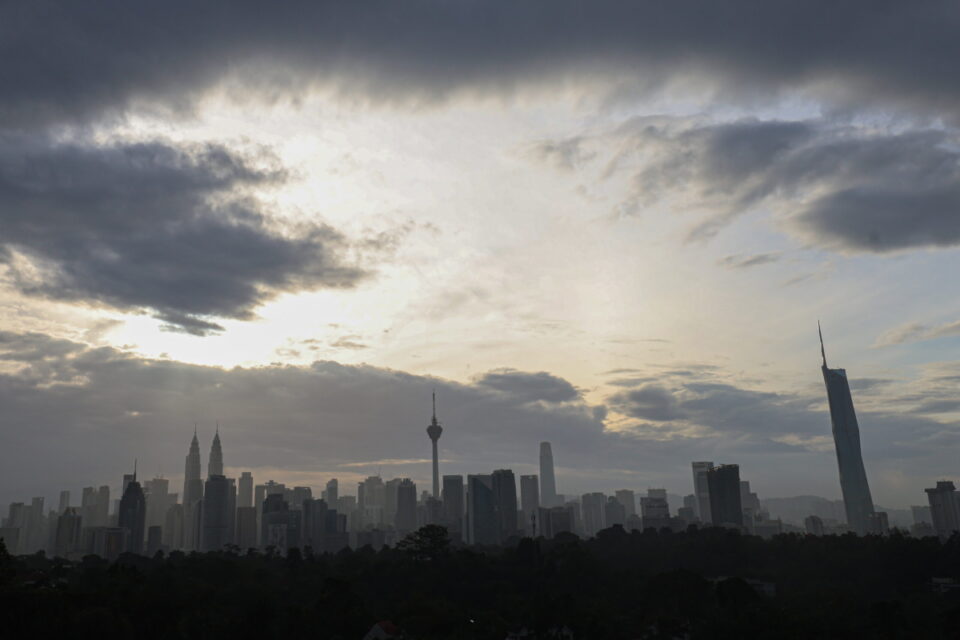By Yasmin Ramlan and Nadirah H. Rodzi
PREVIOUSLY a part of Selangor, Kuala Lumpur, a 240-sq-km enclave, was declared a federal territory after it was handed over to the Federal government in 1974.
The separation was driven by several factors, including Kuala Lumpur’s rapid urbanisation and its need for more autonomous governance, disputes over revenue sharing, and a desire to streamline administrative processes for the capital’s growth, ultimately fostering economic development.
This marked a significant step in Kuala Lumpur’s transformation into the dynamic capital and economic hub it is today. On September 13, Petaling Jaya MP Lee Chean Chung called for Kuala Lumpur to be returned to Selangor to pave the way for better economic coordination and the city’s prosperous and sustainable development.
While debating the mid-term review of the 12th Malaysia Plan (12MP) in the Dewan Rakyat, Lee said he envisions the Klang Valley as one of the key hubs in the region, comparable to other mega metropolises.
In light of this proposal, the debate on whether to reunify Kuala Lumpur with Selangor has attracted significant attention, raising questions on the practicality of the move.
The Selangor Menteri Besar himself, Dato’ Seri Amirudin Shari, had on September 23 responded that the move is only possible if the Federal government decides to no longer designate the city as Malaysia’s capital, along with other conditions set out in the 1974 agreement.
Datuk Teo Kok Seong, the principal research fellow at Universiti Kebangsaan Malaysia’s Institute of Ethnic Studies, believes that the issue should not be raised despite the fact that it would be beneficial to both sides.
He told Selangor Journal that it would be considered as ‘buruk siku’ (the act of one taking back what has been given) and have an adverse effect on the nation’s stability.
“Let it be as it is. Don’t create ‘fenomena buruk siku’. Especially since the agreement took place many years ago … “Even if it is for good intentions, we have to look at the bigger picture for the sake of stability for our country,” he said.
Teo said he believes that carving Kuala Lumpur out of Selangor was the best decision after a thorough process of debates, detailed proposals and resolutions.
“Yes, of course, it was a huge sacrifice from the Selangor government at that time and also the then Sultan of Selangor (the late Sultan Salahuddin Abdul Aziz A test of time Shah Alhaj), but I believe it was implemented for the sake of beloved Malaysia, so that our country would have a focused, dynamic and developing capital city,” he said.
Teo stressed that the nation has to move on and be forward-thinking, especially since the separation took place almost five decades ago.
Letting things be
Teo cautioned that it is risky when one does not properly grasp the significance of historical events, and instead chooses to alter what has once been agreed on.
He gave the example of how Penang was a part of Kedah in the 18th century and that should Kedah someday seek to reclaim it, conflict would unfold. “The same goes in this situation (Kuala Lumpur-Selangor). I hope ‘gejala buruk siku’ can be avoided. I’m pretty sure there were detailed discussions on the pros and cons before it was decided.
“It is not as easy as they think. Yes, it is a man-made law. But it’s not supposed to happen because it has become a part of our history. There is no need to change history,” he said.
Prospects of prosperity
Economist Barjoyai Bardai from Universiti Tun Abdul Razak, on the other hand, has outlined several factors as to why the proposed reunification would bear positive outcomes.
Speaking to Selangor Journal, he said Kuala Lumpur no longer effectively operates as an autonomous state as it lags behind in terms of state governance and lacks representation by state assembly members.
“Numerous critical facilities in Kuala Lumpur, including water supply, roads, and basic infrastructure, heavily depend on Selangor. In comparison to other states, Kuala Lumpur does not fulfil its role as a self-contained territory,” he said.
From an economic vantage point, Barjoyai emphasised the potential benefits of Kuala Lumpur falling under Selangor’s jurisdiction.
“If Kuala Lumpur were to be integrated into Selangor, its governance would be considerably more manageable, having previously been under Selangor’s administration. It is imperative that Kuala Lumpur be overseen effectively as a district within Selangor,” he remarked.
Addressing the potential liabilities Selangor might assume, Barjoyai noted that Kuala Lumpur’s business centres and housing developments may be excessively congested, and that Selangor may need to allocate significant resources to manage them effectively.
“Nonetheless, I maintain my support for the return of Kuala Lumpur to Selangor,” he added.
Sprawling metropolis
On the financial front, Barjoyai said Selangor already contributes more than 25 per cent of the nation’s income. With Kuala Lumpur’s inclusion, it could become the largest revenue contributor, at about 40 per cent of Malaysia’s total income.
“It is also crucial to recognise that the country’s primary economic hubs are situated in Selangor and Kuala Lumpur,” he said.
“We may envision Selangor transforming into a sprawling metropolis encompassing the entire Klang Valley. “Drawing parallels with cities such as Jakarta and Istanbul, which boast nearly 10 million residents, we can anticipate a similar trajectory for Selangor within the next 10 to 15 years.”
Barjoyai also emphasised the overall positive outlook from a cost-benefit analysis standpoint.
He said Selangor’s income comfortably surpasses its expenses, and integrating Kuala Lumpur would yield qualitative benefits. For instance, the combined collection of zakat (charitable donations) in Kuala Lumpur and Selangor would exceed RM2 billion.
He cautioned that the present alignment of state and Federal administrations presents an opportune moment for this transition, and more opposition may arise if there are more delays.





